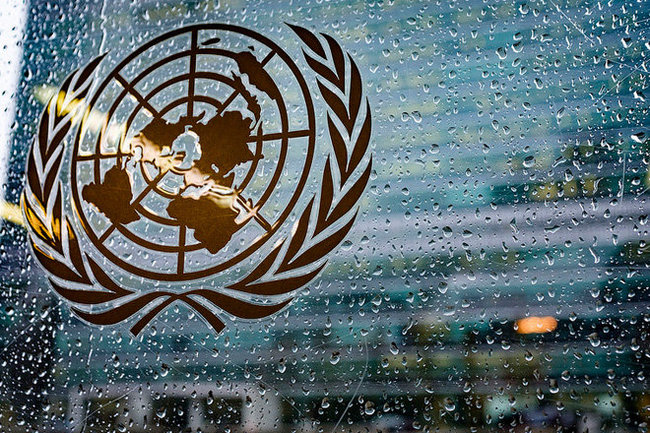Remarks by Permanent Representative Vassily Nebenzia at the "Arria-formula" VTC of UNSC members to commemorate the 25-year anniversary of the General Framework Agreement for Peace in Bosnia and Herzegovina
Colleagues,
This year marks the 25-th anniversary since the General Framework Agreement for Peace in Bosnia and Herzegovina has been signed. The Dayton Peace Agreement with its 11 annexes represents a complex and unique architecture for maintenance of regional peace and security. It was hard-won, but it brought to an end the most brutal conflict in Europe since the Second World War, conflict that claimed more than 100,000 lives and caused more than 2 million people to flee their homes.
It is hard to overestimate the importance of the 1995 Dayton comprehensive agreements. Their consistent implementation both put an end the Bosnian conflict and made it possible to achieve tangible results in reconciliation, the post-war restoration and development of the decentralized BaH.
Twenty-five years after the Agreement was reached, the Dayton Accords remain the most important documents for Bosnia and Herzegovina, regulating all spheres of its political, economic and social life.
Russia, as one of the Dayton’s guarantors, fully supports the basic principles of sovereignty and territorial integrity of Bosnia and Herzegovina, equality of all the three constituent peoples and the two entities with wide powers. On the 25th anniversary of the Dayton Peace Agreement, we call on our partners in the UN Security Council to speak out in favor of these provisions. The accords that were signed in 1995 have a fundamental significance for BaH and maintain their relevance in full. The balance of interests of the three peoples, which is envisaged in the document, is effective enough, provided that it is strictly adhered to. Attempts to undermine this architecture is fraught with very serious consequences not only for BaH, but for the entire Balkan region.
We invited representatives of the three main political parties, who can speak on behalf of the three constituent peoples of BaH. Unfortunately, the representative of one political party, namely Bakir Izetbegovic, decided not to attend this meeting in person. But we are glad that in the end he engaged in the discussion by sending his letter to us, to the Security Council members and to the press. We circulated the letter beforehand and you all had enough time to read and study it.
Among other things he pointed out that we should have invited the BaH Presidency. Let me assure that we had no intent to devalue the Presidency. The Arria-formula meetings are informal events where one can invite unofficial persons, parliamentarians, representatives of civil society, even opposition leaders.
Prominent leaders whom we purposefully invited today cannot make interventions at official meetings of the Security Council. But we want their voices to be heard. And they, being leaders of political parties, represent the voice of the civil society. We are sure that Security Council deliberations today will benefit from listening to them.
Also at the request of several Security Council members we have invited High Representative Mr. Valentin Inzko to take part in today’s meeting. We have listened to his briefing on 5 November, 2020, but it is our hope that this Arria-formula meeting will differ from regular meetings of the Security Council. We count on a constructive and engaged dialogue.
We expect that today’s meeting will demonstrate that the Dayton Peace Agreement remains the bedrock of a stable, peaceful and modern Bosnia and Herzegovina that is developing steadily in the interests of all its peoples and citizens.
***
I thank the representative of the United States for his statement. And I can’t but agree with what he said: we would also like to have seen here another representative from Bosnia and Herzegovina. It was not our preference that he, unfortunately, chose not to participate. But as I said, he made his mark on our meeting by distributing a letter.
***
I thank the representative of the UK for her statement. Frankly, I was somewhat puzzled to hear comments that she made. I think in my introductory statement I made it clear what was the reason for the choice of briefers for today. We deliberately chose not to invite the officials, but rather chose the most representative parties of the constituent peoples who, in fact, represent the civil society. That was the reason.
Yes, we are celebrating the 25th anniversary of Dayton, but we should not shy away from challenges presented by the implementation of Dayton. Whether someone likes it or not, today’s discussion testified to it. However sorrowful it is, it only makes us work harder for the full and faithful implementation of Dayton.
***
I thank the representative of Belgium. I may sound somewhat excessively repetitive, but I would like to say once again that we invited representatives of all the three constituent peoples. They all had ability to participate. It was not us, but them who chose not to, at least some of them.
***
I think it is time to start wrapping up this session. I thank all participants. I believe that the meeting, however divergent it was at times, was useful. It allowed to look at the situation from a possibly new angle – the one that we do not approach at the Security Council meetings on this particular issue.
This meeting revealed, perhaps a bit paradoxically, the support of all who spoke here for the Dayton Agreements. And it showed that there is no viable alternative to them. In this sense, the Dayton Agreements should be implemented faithfully and in full. Although we clearly saw a divergence on how this agreement is being implemented.
As for Russia, we would like to see Bosnia and Herzegovina as a prosperous, independent and sovereign state whose peoples determine their fate on their own, without foreign interference. And us, as the international community, are obliged to help them do so.
I thank you all for your time – both briefers and participants. Good-bye.
